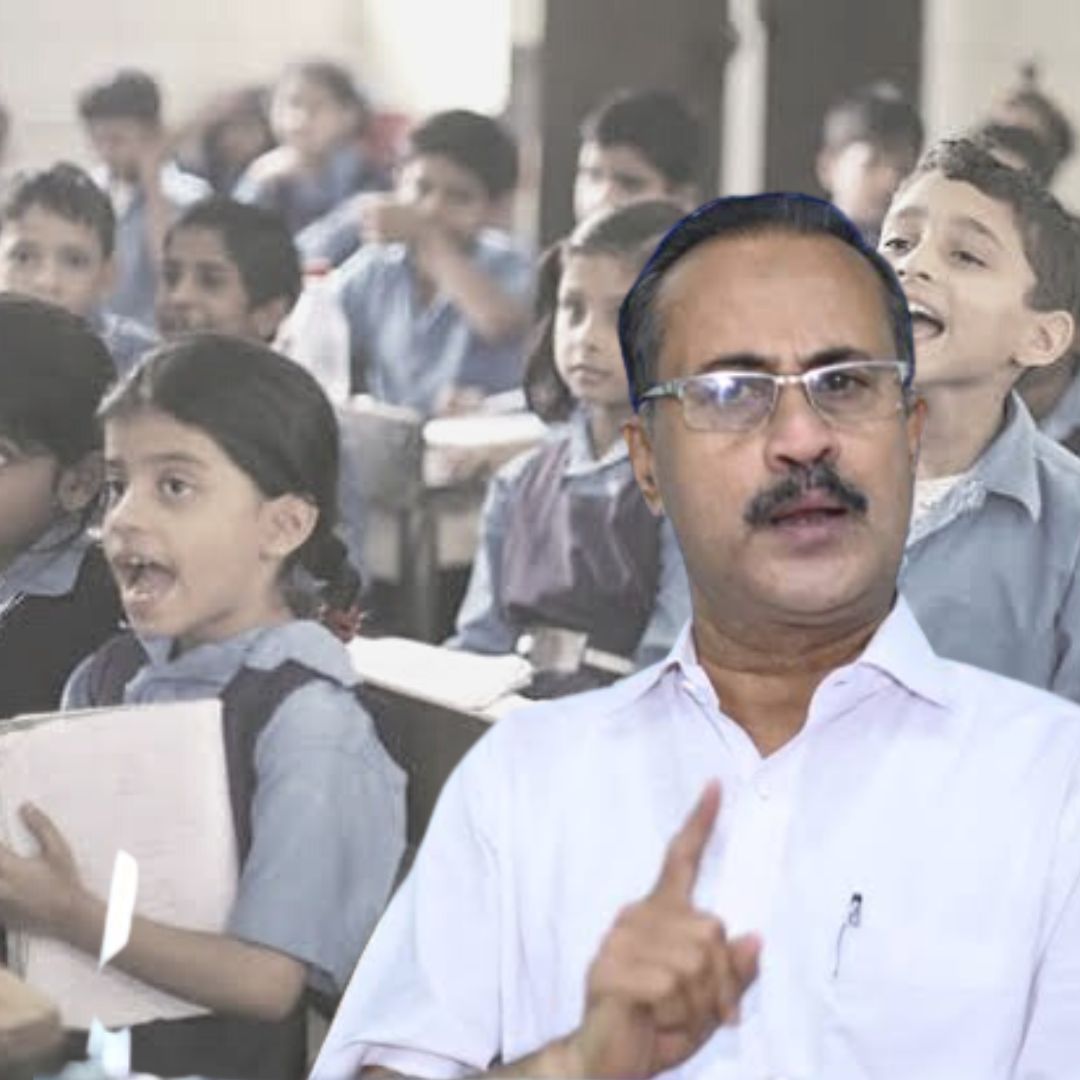
Image Credits: Facebook and Indian Express (representational
'Dangerous' To Have Boys & Girls Sit Together In Classes: Gender-Neutral Policy In Kerala Strikes Controversy Again
Kerala, 24 Aug 2022 5:29 AM GMT
Editor : Snehadri Sarkar |
While he is a massive sports fanatic, his interest also lies in mainstream news and nitpicking trending and less talked about everyday issues.
Creatives : Laxmi Mohan Kumar
She is an aspiring journalist in the process of learning and unlearning many things. Always up for discussions on everything from popular culture to politics.
With about 21 educational institutions having been turned into a mixed education system, Muslim League General Secretary draws criticism with his statements on the co-education and gender-neutral uniform policies in Kerala.
With ongoing debates on gender-neutral uniforms and converting single-sex classrooms to co-educational ones, the Kerala Indian Union Muslim League (IUML) general secretary PMA Salam fuelled it up with his controversial statement. He considers it "dangerous" to have boys and girls sit beside each other in classrooms and believes that it would "deviate" their focus from their studies.
Questioning the need to transform the classrooms, he considers the left government's move to be a forcibly imposed one. Expressing his distaste for introducing such liberal policies into the schools, he condemned the reforms that were proposed. However, the ruling government has conveyed that the decision ultimately remains within the hands of the students and the parents.
A Question Of Morality
Calling it a "dangerous" move to have co-education classrooms, the IUML general secretary PMA Salam came along with strong criticisms against the left party's education reforms. Questioning the need to put girls and boys together in classrooms, he said that such forced scenarios would deviate the students from their studies.
Salam also added that gender neutrality extended beyond the religious lens and was to be looked at from a moral perspective. With this, he also rebuked the attempts made to impose a gender-neutral uniform system and conveyed that he is against the attempt to bring in liberalism. As reported by the News 18, several other Muslim organisations also rejected the policy that was being implemented.
Kerala Education minister and Communist Party leader V Sivankutty responded that the final decision-making power rested within the clutches of the students and their parents. While the decision regarding it is still on standby, it has caused quite the chaos with the ruling and opposition parties engaging in word wars. The minister had also added that the decision to turn single-sex schools into co-educational institutions was taken with a great deal of consideration in regard to the order passed by the state child rights panel. So far, 21 educational institutions have been said to be turning to a mixed education system. Having said this, he assured that the government is not "insistent in implementing" gender-neutral uniforms right away.
Equality Begins At Home
Speaking to a teacher from a government girls-only high school in the capital city of Kerala, she mentioned how the idea of gender neutrality and equality needs to begin at home. True education starts right from home, and schools simply act as an extension of the same. Thereby, expecting these policies alone to imbue students with ideas of equality would be a perfunctory vision.
Furthermore, even though many teachers may consider co-education to facilitate a gender-sensitive space, this may not be the case with the parents. Parent groups play a considerable and relevant role in deciding the education pattern. In reference to her school, which is located in a Muslim majority area, she said that many had dissented ideas of gender neutrality being propagated through schools.
The success of a policy then would depend on how it is approached and introduced to groups with different interests. If forcibly imposed, even the most sought-after policies could fail. Suggesting the need for building a comprehensive awareness among students and parents, she says that a change can only be brought in when the people truly understand the benefits of a policy and accept it whole-heartedly.
As for gender-neutral uniforms, she says that many government schools, including the one she works at, have by default been following the pants-shirt uniform style for decades now. In regard to the uniform system, she said that it has been in practice for a long time now and is flawed in many terms. The uniform pants are usually not comfortable for many girls at the school, and an appropriate reform needs to be discussed in the form of comfortable clothing rather than reinstating already existing inclusive options. She added that if the girls at her school had an option, many would wear either jeans or an abaya, depending on their comfort.
Revisiting her pre-degree era, the teacher commented on how there were no uniform systems for the high schoolers back in those days. It was only later on that the uniform dress code was implemented for students, teachers, and even staff.
Also Read: Trendsetter! This Kerala School Introduces Gender-Neutral Uniform, Earns Praises From People
 All section
All section














